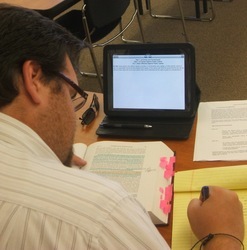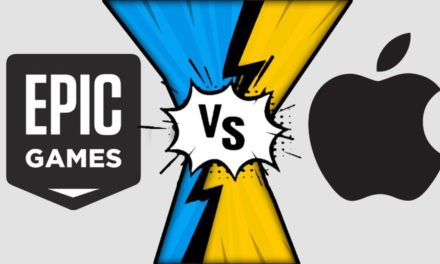Monterey College of Law, a California accredited law school located in Seaside, California, is the first law school in the US to adopt the iPad as an integral part of the law school curriculum. Law students at Monterey College of Law returned from summer break to the news that they’re part of a pilot program that will provide iPads to each law student at the school.
Through a program developed by the law school with BAR BRI, the country’s largest bar exam review company, each MCL law student receives an iPad when they enroll in the BAR BRI supplemental curriculum program that the students use while attending school and in preparation for the California Bar Exam
“Law schools are rarely found close to the leading edge of technology,” says Mitchel Winick, president and dean of the law school. “However, it is clear to me that combining this technology with interactive, portable, timely content and harnessing the energy of on-line social networking provides a number of immediate educational opportunities.”
This is particularly true for an evening law school like MCL that has a traditional classroom-based legal education program in which many students are balancing a full work and family schedule while attending law school, he adds.
“Many of our law students work the equivalent of three jobs,” said Wendy LaRiviere, dean of Admissions. “Between law school, work, and family, it is a constant challenge for them to set aside enough time during the week to study.”
Winick believes that “ the iPad will provide time-challenged students an easy way to add 30 to 45 minutes of studying each day … during a lunch break, waiting in the car-pool line, or even getting their oil changed. The result will be an additional 3-5 hours per week of valuable study time, he says. If he’s right this has the potential to add 200 to 250 hours of study time per year and possibly as much as 600 to 700 additional hours over the course of the law degree program.
“If our students use this ‘found’ time to do additional reading and incorporate a more extensive use of their class notes, study guides, and practice exams,” Winick says. “We expect to see a positive result in law school performance and continued improvement in the bar pass rates of our graduates.”
Chris Marohn, a third-year MCL law student who is the immediate-past president of the Student Bar Association noted that excited Facebook posts about the iPad program were circulating through the rest of the student body before the Dean finished announcing the new program to the first-year class.
One hundred percent of the entering first-year students and approximately 70% of the upper level students enrolled in the new program by the end of the first week of law school. Winick expects that most of the remaining students will enroll over the next few weeks as students begin experimenting with new ways to study using the iPads. It is only a matter of time before virtual study groups are formed to support each of the core law school classes, says Winick.
The second step of the program is to provide access to iPads for MCL law faculty members who are interested in integrating the iPad into their regular course materials and classroom presentations.
“The objective of the MCL faculty pilot program will be to develop examples of using iPad technology to enhance and expand traditional legal education without diminishing any of the core academic values,” says Stephen Wagner, law professor and president of the faculty senate. The law school will pilot-test the faculty program during the current academic year and anticipates expanding the program to include all interested faculty members next year.




